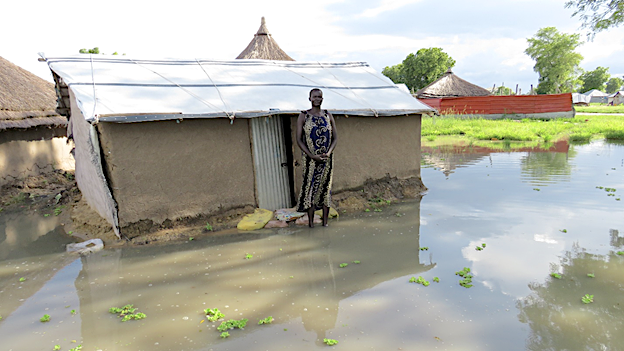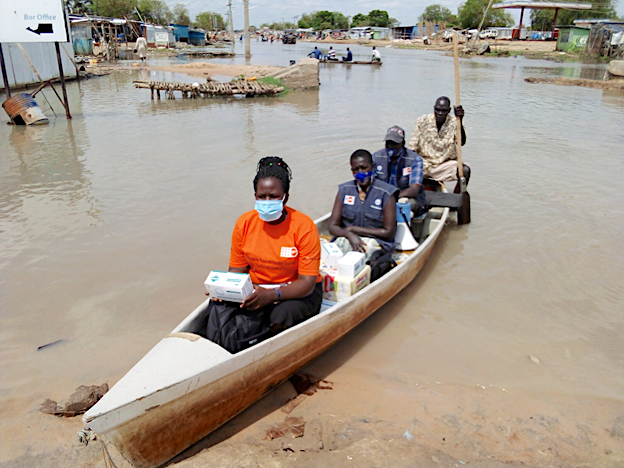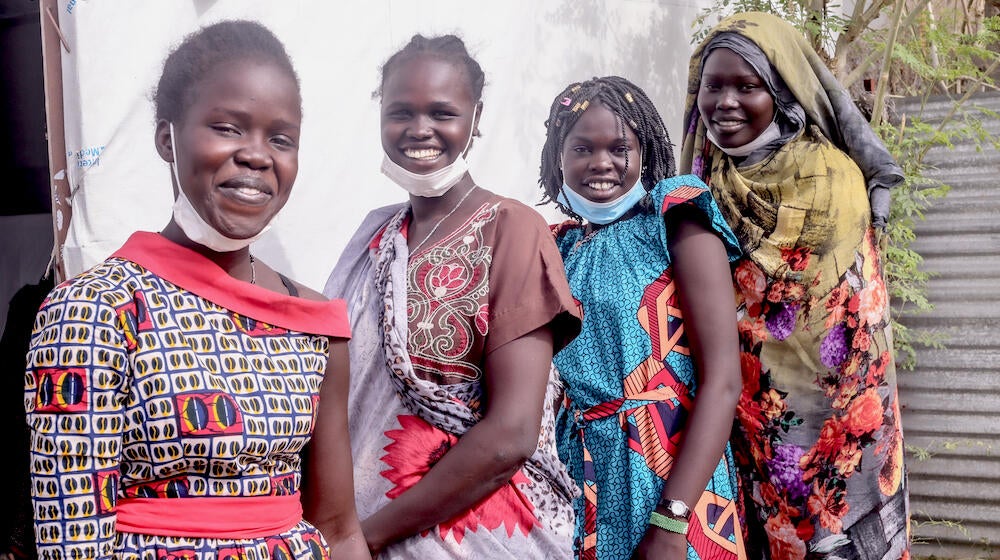BOR, South Sudan—As if extreme poverty and the ongoing humanitarian crisis brought about by armed conflict in the country were not enough, severe flooding has affected hundreds of thousands of South Sudanese people since the onset of the rainy season this May.
“Things are very difficult,” says Bor resident Moses Makol Riak, whose family was displaced by flooding last April. They have been living with the family of his stepbrother ever since.
We cannot work, we cannot cultivate the land, and COVID-19 is also looming around us.

“We are now living together as an extended family and providing for the basic needs of everyone is a big challenge,” said the 45-year-old father of four. “We cannot work, we cannot cultivate the land, and COVID-19 is also looming around us.”
Another Bor resident, Kedia, 49, found a way to deal with the sense of desperation and hopelessness created by the disaster. Barely recovering from the floods of 2020, her family’s home was once again inundated when the rainy season began.
“We have nowhere to go to escape the flood, so we stayed in the flooded house. We don’t know where to get food. The situation is very difficult for me,” said Kedia. Her husband is a retired soldier and has no regular source of income to feed their six children.
Renewed hope in a crisis
Kedia found a glimmer of hope when she met one of the female chiefs in her village, who told her about the Women and Girl-Friendly Space (WGFS) being managed by Interchurch Medical Assistance (IMA) through UNFPA, the United Nations sexual and reproductive health agency, and with funding support from ECHO.

I know my life will change when I finish this course because I will have my own business.
“When I visited the WGFS, the Interchurch Medical Assistance staff and other women warmly welcomed me and listened as I told them about myself and how my family is dealing with the difficult situation,” Kedia said. “I am happy to have another family at the WGFS. I am excited about the training on tailoring that I joined. I know my life will change when I finish this course because I will have my own business.”
UNFPA supports the WGFS to provide women and girls affected by humanitarian crises a safe entry point for services and information about their health and well-being, especially for those at risk of gender-based violence during displacement. The WGFS offers case management for GBV survivors, group and individual psychosocial support services, livelihood skills training and referral of the GBV survivor to related services, if needed.
The impact of climate change has affected a number of communities in South Sudan. According to OCHA, around 380,000 people from six states have been affected by the flooding from May to August this year. Many of those affected have moved to higher ground within their county and need humanitarian assistance.
There are 13 Women and Girl-Friendly Spaces supported by UNFPA in South Sudan. ECHO, Japan, Norway and Denmark are the donors funding the WGFS programme. In 2020 alone, more than 250,000 people accessed various services at the WGFS.


